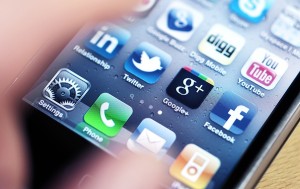Facebook has been sent to the naughty corner.
It all started when news broke this week that the beloved social media site, that allows us to share our innermost thoughts, dreams and breakfasts, used its loyal followers as part of an experiment. And let’s just say most users were not happy.
In 2012 Facebook altered its algorithm so some users experienced a reduced amount of positive news, while others experienced a reduced amount of negative news. The Facebook-powers-that-be secretly manipulated the feelings of around 700,000 users to understand “emotional contagion”, as they wanted to see if the number of positive or negative words in messages would affect what the users themselves posted and, as it turns out, it did.
People who were exposed to positive updates from their friends tended to be more emotionally positive themselves while users who were shown negative news began to use more negative words. The study led to many Facebook users slamming the social media giant and threatening to boycott or sign off for good.
Aside from the betrayal and anger users are feeling at having their emotions manipulated by the study without their consent, the more frightening question is how much power does Facebook have over our mental health?
Brisbane Mental Health Association clinician Dominic Hale says that continued exposure to social media has the power to both slay us and save us.
“Social media is a double edged sword,” he says. “For people who are feeling socially isolated there are benefits they gain from using social media. They feel like they have a support network. They can express themselves and reach out to friends for help. Social media has faced a lot of negativity lately, but we feel that it can be really helpful for people dealing with mental health issues.
“The important thing to remember is that people are only representing a small idea of themselves. It’s important that you don’t fall into the trap of looking at other people’s lives and feeling inferior to them. With Facebook, users can reach out for help and even if they are not in constant contact with these people they know what is going on in their lives and they feel connected.
“Whether or not you need to step away from social media depends on how you are viewing it. If your friend posts a status saying they are having a sandwich for lunch do you think ‘I like knowing what’s going on with th
em and it looks like a great sandwich’ or do you think ‘why do they always get the good sandwiches?’. If you’re seeing everything in a negative light you may need to address the issue.
“If you see somebody on Facebook who looks like they need support, reach out to them. But just remember that online support is not a substitute for professional help.”
Brisbane Centacare Mental Health coordinator Michael Connor says the key to overcoming social media mental health issues can sometimes lie in social media itself.
“I recently ran a support group for people between 18 to 35 suffering from psychosis,” he says. “In the group was an 18-year-old boy who spent most of his days online and gaming. This caused problems at home with his mother and siblings and prevented him from going into the outside world and building friendships.
“So we worked with him and encouraged him to use Facebook and Twitter, along with gaming, to build relationships. He made quite a few friends through this and met a girl online who lived in North Queensland. As their friendship progressed they decided to meet in person and she traveled to Brisbane where they met at Roma Street station. They are now in a romantic relationship and because of social media he was able to forge connections in the outside world.
“It’s important to remember that social media does not exist in a void. There are people out there in these online worlds and connecting with them is a way for people like him to build their confidence.”
So, Facebook, the world is pretty angry with you right now, but I think it’s time for us to give you a reprieve. It’s pretty nice of you to let us share photos and thoughts with friends that are spread across the planet, and without your little blue-and-white world many friendships would not be maintained and many connections not forged.
The important thing to remember is that what we post, whether negative or positive, has a direct effect on the people reading our musings. And if what we’re seeing is affecting us badly, or we come across people in the online world who are suffering, then it’s time to reach out for a little professional help.
After all, we’re pretty much stuck living in this online world together. Let’s keep it nice.
If you need some to talk to you can call Centacare on (07) 3324 3100, Mental Health Association Queensland on 1300 729 686 or Beyond Blue on 1300 22 4636.
Spending too much time on social media and want to take a step back? We’ve prepared a 12 step digital detox plan to help you out.
Will you be unfriending Facebook or does social media help you stay connected to your loved ones? Let us know below!
This article first appeared on bMag on 2 July, 2014.























